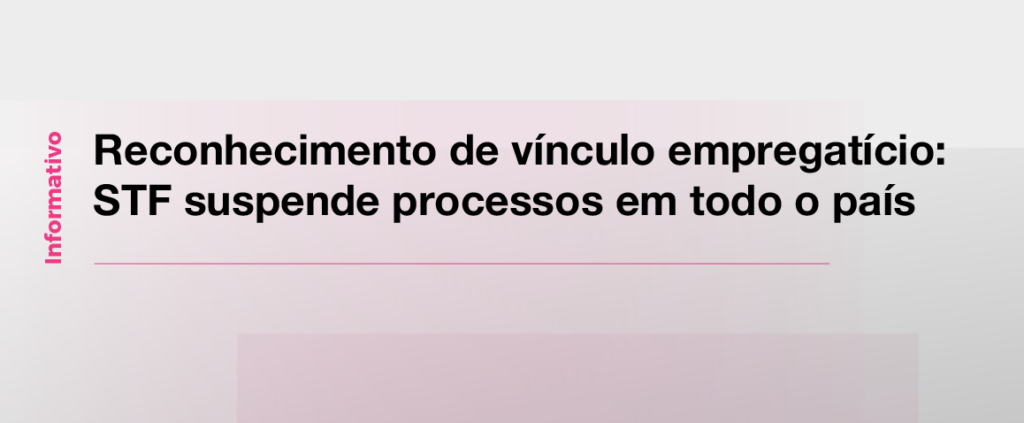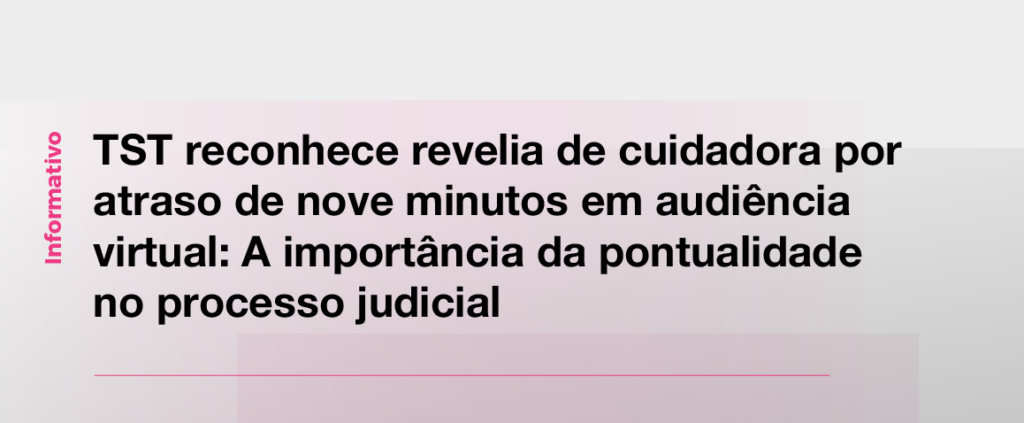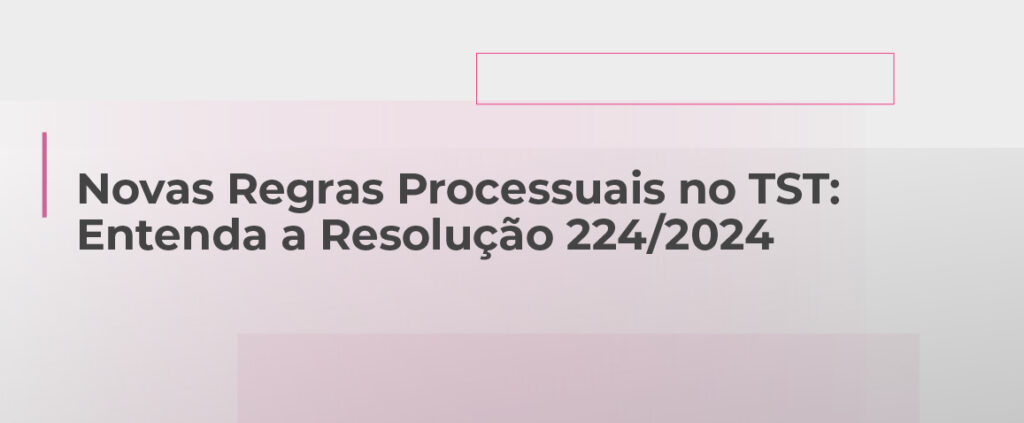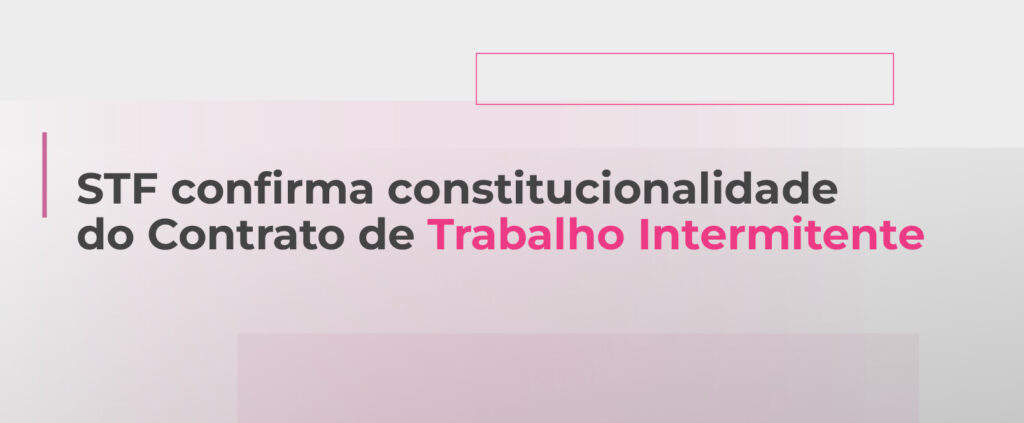Recognition of employment relationship: STF suspends proceedings throughout the country

O Supremo Tribunal Federal (STF) determinou a suspensão de todos os processos em curso no país que discutam o reconhecimento de vínculo de emprego em contratos de prestação de serviços.
A decisão foi tomada no Recurso Extraordinário com Agravo nº 1.532.603, no qual se discute a licitude da contratação de trabalhadores autônomos ou por meio de pessoa jurídica, a competência da Justiça do Trabalho nesses casos e o ônus da prova quanto à alegação de fraude.
A medida visa assegurar a uniformidade das decisões e a segurança jurídica, e permanece válida até o julgamento definitivo do tema.
TST recognizes caregiver's default due to nine-minute delay in virtual hearing: the importance of punctuality in judicial proceedings

The Superior Labor Court (TST) upheld the decision that recognized the default of an elderly caregiver due to a nine-minute delay in entering a virtual evidentiary hearing, resulting in the application of a fictitious confession in favor of the opposing party. The decision reinforces that punctuality is essential in virtual hearings, according to article 844 of the CLT, which provides for default in the event of the claimant's absence. Although case law has relaxed minimum delays in some cases, the TST strictly followed the legislation, highlighting the importance of strict adherence to schedules. The recommendation for workers and lawyers is to enter hearings at least 15 minutes in advance to avoid setbacks and procedural losses.
Union Leader and Just Cause: Understand the Process and Protect your Company

A tire manufacturer has been convicted of granting financial benefits to employees who did not join a strike, which constitutes anti-union practice. The decision reinforces that labor laws protect the right to strike and prohibit any form of discrimination or retaliation by the employer. Financially incentivizing non-participation in a strike movement can result in severe penalties, such as compensation for collective moral damages and administrative sanctions.
Our office has extensive experience and is prepared to guide your company in decision-making and implementation of good labor practices and union relations.
TST Decides that Property Seizure Should Only Fall on Part of the Debtor in Labor Execution

Court decides that the seizure of property under execution should only apply to the part belonging to the debtor, ensuring the protection of the co-owner's share.
Large Retailer Sentenced for False Information about Interest Rates

A recent decision by the TRT-15 condemned a large retailer for unethical practices, including moral harassment and false information about interest rates on installment purchases. The case reinforces the importance of an ethical work environment and efficient reporting channels.
With the NR-1 updates for 2025, which include psychosocial risk management, your company must:
Strengthen reporting channels.
Carry out continuous training.
Monitor occupational risks.
#Compliance #NR1 #CorporateEthics #LaborLaw #RiskManagement
New Procedural Rules at the TST: Understand Resolution 224/2024

The recent Resolution No. 224/2024 of the Superior Labor Court (TST), which came into force on December 28, 2024, brings significant changes to the labor appeal system, especially in the processing of appeals. Among the main changes introduced by Resolution 224/2024, the possibility of filing an internal appeal for decisions […]
Differences Between Medical Certificates and Attendance Statements: What You Need to Know

In employment relationships, situations of absence due to health reasons are common, but it is essential that employers and employees understand the differences between medical certificates and attendance statements, since these documents have different purposes and legal effects. A medical certificate is issued by a qualified professional and proves the employee’s incapacity […]
STF Confirms Constitutionality of Intermittent Employment Contract

In the virtual plenary session, the majority of the ministers of the Federal Supreme Court (STF) voted for the constitutionality of the intermittent employment contract, a model introduced by the labor reform (Law 13,467/17). So far, seven ministers have spoken out in favor of the validity of the provision, while two others have spoken out against it, in actions that question the modality. The Intermittent Employment Model […]
Brazilian companies must assess psychosocial risks from May 2025

Starting in May 2025, all Brazilian companies will be required to include psychosocial risk assessment in their Occupational Health and Safety (OHS) management processes. This requirement is the result of the update of Regulatory Standard No. 1 (NR-1), promoted by the Ministry of Labor and Employment (MTE) in August 2024. Risks […]
Monetary Update and Interest on Labor Debts: What Should Employers Know?
In recent months, the Brazilian labor law scenario has undergone significant changes, especially with regard to monetary correction and interest applicable to labor debts. These changes directly impact employers, requiring more strategic management of labor liabilities and careful adaptation to the new rules established. TST Decision and Legislative Changes The […]